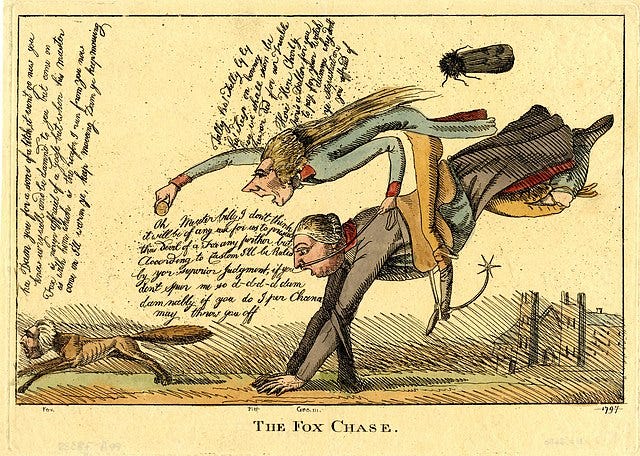While it may sound in one’s head like “The Paper Chase” - that 1970’s movie that followed the tedious travails of heroic (there really was a time when attorneys were seen as heroes and not parasites) law students before morphing into a tendentious television travelogue of the powers that were soon to be – pay and chase is something completely different.
And it’s something your government – at every level - absolutely believes in.
And not just in the monetary sense.
When she was California labor secretary, Julie Su specifically used the concept of “pay and chase” when it came to people defrauding the state’s unemployment benefit system.
Pay and chase means exactly what you think – “shove the money out the door and then see if you can get any of it back if the claim was fraudulent.”
California owes the feds about $22.4 billion dollars – not including the other federal aid which in theory would add about another $30 billion to the tab, if Su, who became Acting Secretary of Labor for the Feds, had not forgave that part of the debt - because of that decision.
Just to be clear: Su’s years of claiming “every state was having problems” is false. California still has about 70% of the remaining outstanding “pandemic” unemployment debt held by the federal government.
Have fun chasing all the way to Pyongyang.
But her concept has had some success, as everyone else with a federal business card and a desk seems to follow the same idea. The Department of Government Efficiency (DOGE) recently noted that the same “pay and chase” concept exists in almost every government department.
"The @DOGE team discovered, among other things, that payment approval officers at Treasury were instructed always to approve payments, even to known fraudulent or terrorist groups. They literally never denied a payment in their entire career. Not even once," Musk, the chair of DOGE, posted early Saturday morning to X.
So why would government folks routinely send out funds to whomever, for whatever?
First, it is due to the bureaucratic imperative, especially in times of (theoretical and/or manufactured) crisis.
Second, checking to see if the recipients qualified for said funds is irksome and time consuming.
Third, government agencies – at all levels – use “activity” instead of “accomplishment” for their success metric. If your job is to shovel money out the door, the more you shovel and the faster you do it means you are doing your job well.
Fourth, it’s not your money so it doesn’t matter.
But the most important – amazingly – thing is not the financial implications of the attitude, but trickle-downs of the general mindset. Pay and chase, or, more accurately, the lazy/blinkered thought behind it, infects everything the government does, though possibly in a slightly different manner.
Pay and chase becomes approve - or not - and then fine/destroy, or not, depending upon the moment.
If you are powerful and protected, you are allowed to do anything – you automatically qualify for whatever you need and then maybe you will be subjected to “chase,” if the government is embarrassed enough. (see current confirmation hearings.) https://thomas699.substack.com/p/kabuki-bukkake
If you are not, welcome to the world of “pay,” (even though it’s you paying them,) which, funnily enough, has no actually final cost attached…ever.
The process, as they say, is the punishment.
Two examples – a person wants to fill in a seasonal puddle on their property but is told that because the rain falls every once in a sometimes and sometimes some birds use that puddle they cannot make the change.
Offer a replacement of a mosquito-controlled artificial but naturally-controlled pool that will be three times the size and automatically filled with migrating-species appropriate bird feed whenever they show up?
Denied – that’s unnatural.
Second, you create a drug that may or may not help some or none of the populace and things are a bit nervy so that it is approved with a mod and a wink and maybe a check or two.
In other words, the idea of regulatory pay and chase is useful if you have the money and connections, but not at all if you do not.
What all of this means is that government agencies are getting the concept of proper governance exactly backwards.
When it comes to paying people, it should be chase then pay. When it comes to chasing people, that should not even be needed.
Because if you were doing your job, you wouldn’t have to bother to chase down companies or people to comply with regulations and/or to make sure they did not commit fraud, or something horribly worse.
And that’s why government workers – not the cops, not the firefighters, not the street crews; no, the second-level management tier – are so afraid right now.
With the firings coming down the pike, the jig is up and they are about to lose the ability to either make pay and chase happen or to grant such munificence.
To be blunt, if I worked for the feds right now I’d be getting strep throat – for a few weeks.
Cough, cough.



Hope you've shared this with the DOGE folks. . . good stuff.
Thomas, Your fourth point is missing the word "NOT" which is the only important word that should be in that point...lol. Love your stuff but some typos have to be corrected.